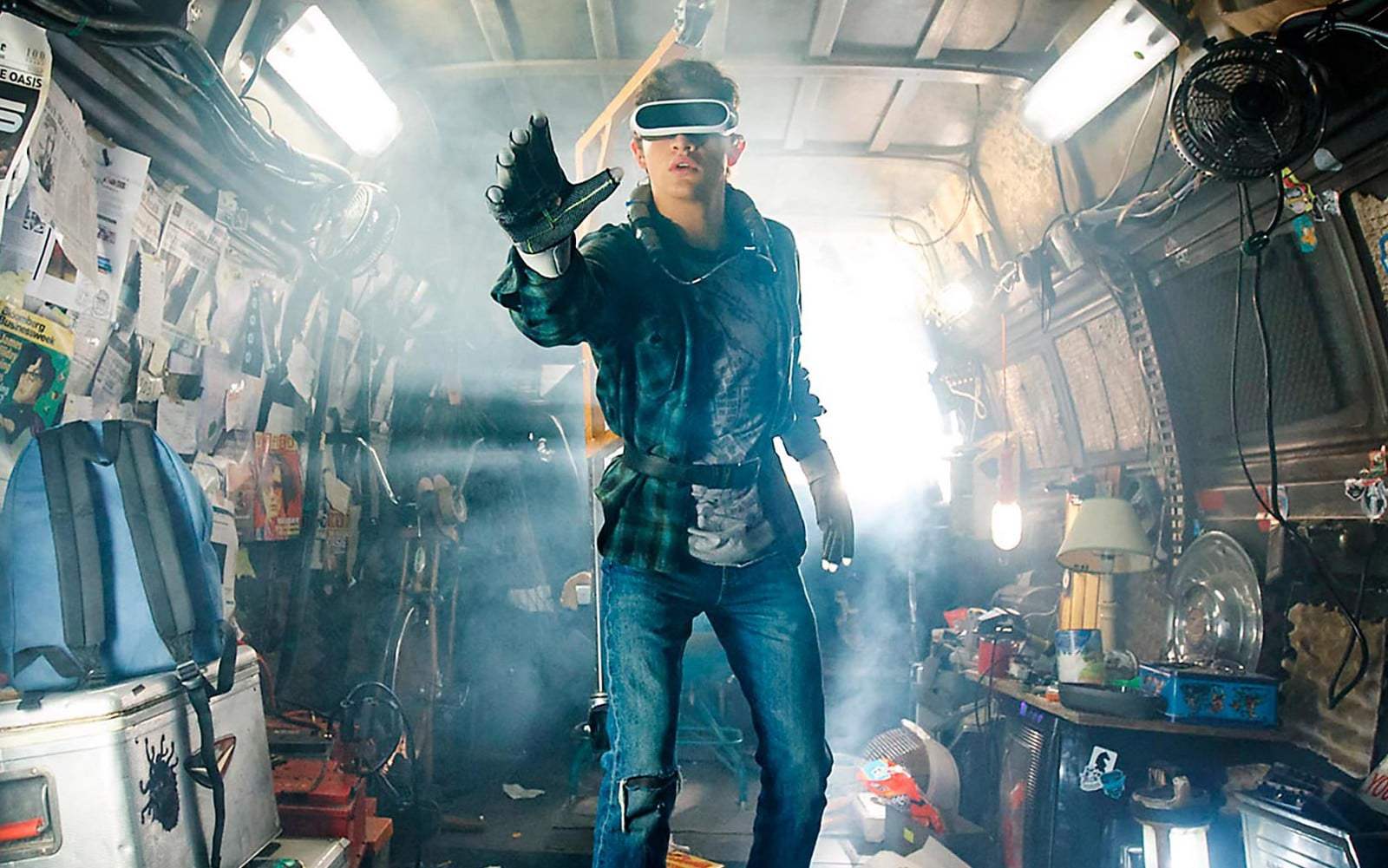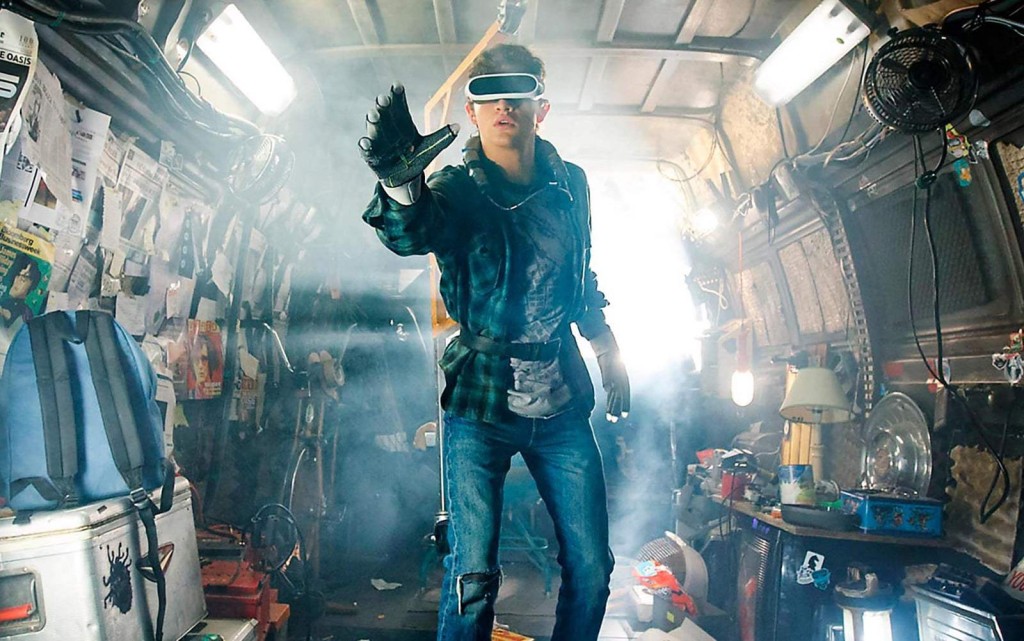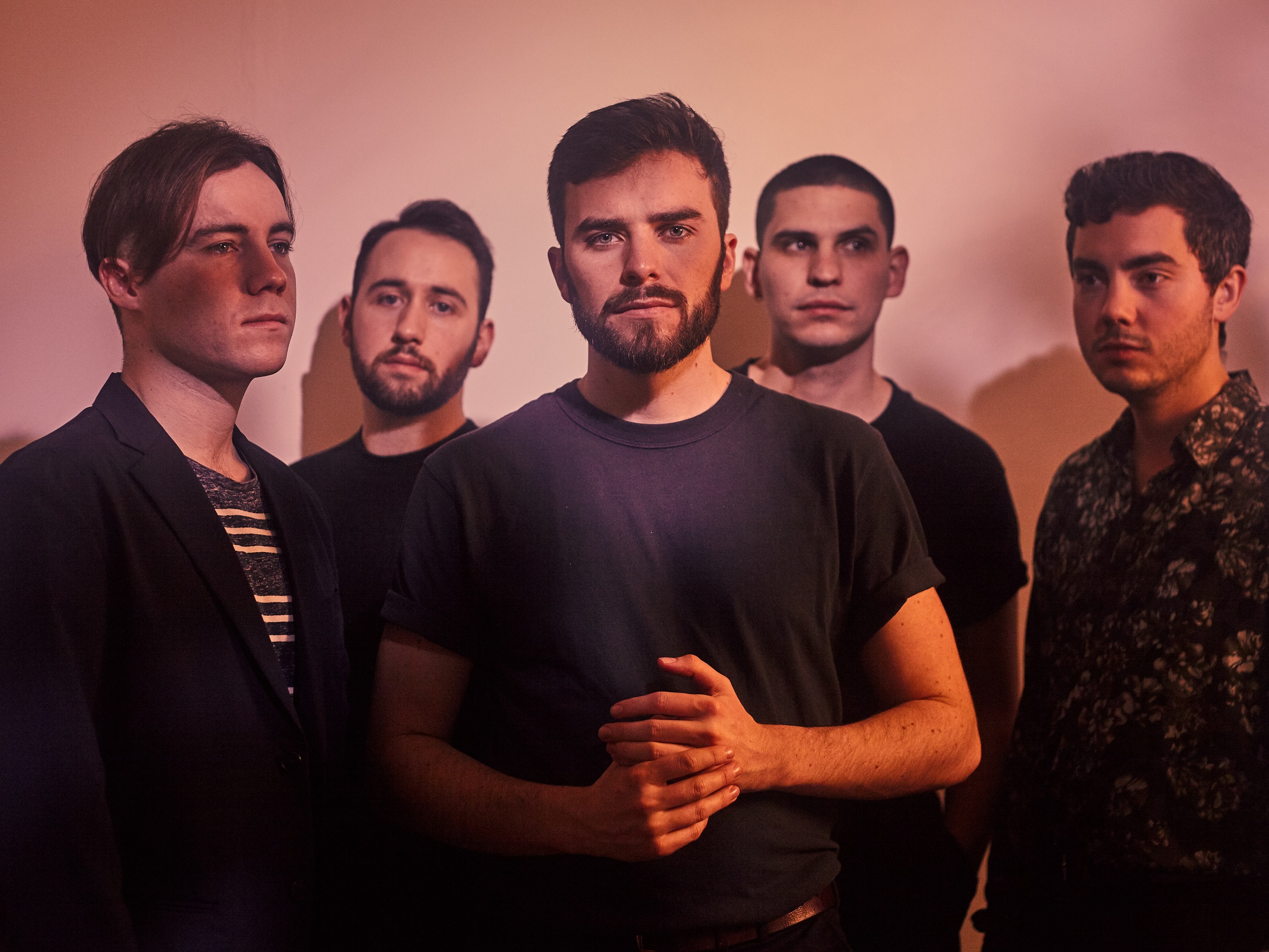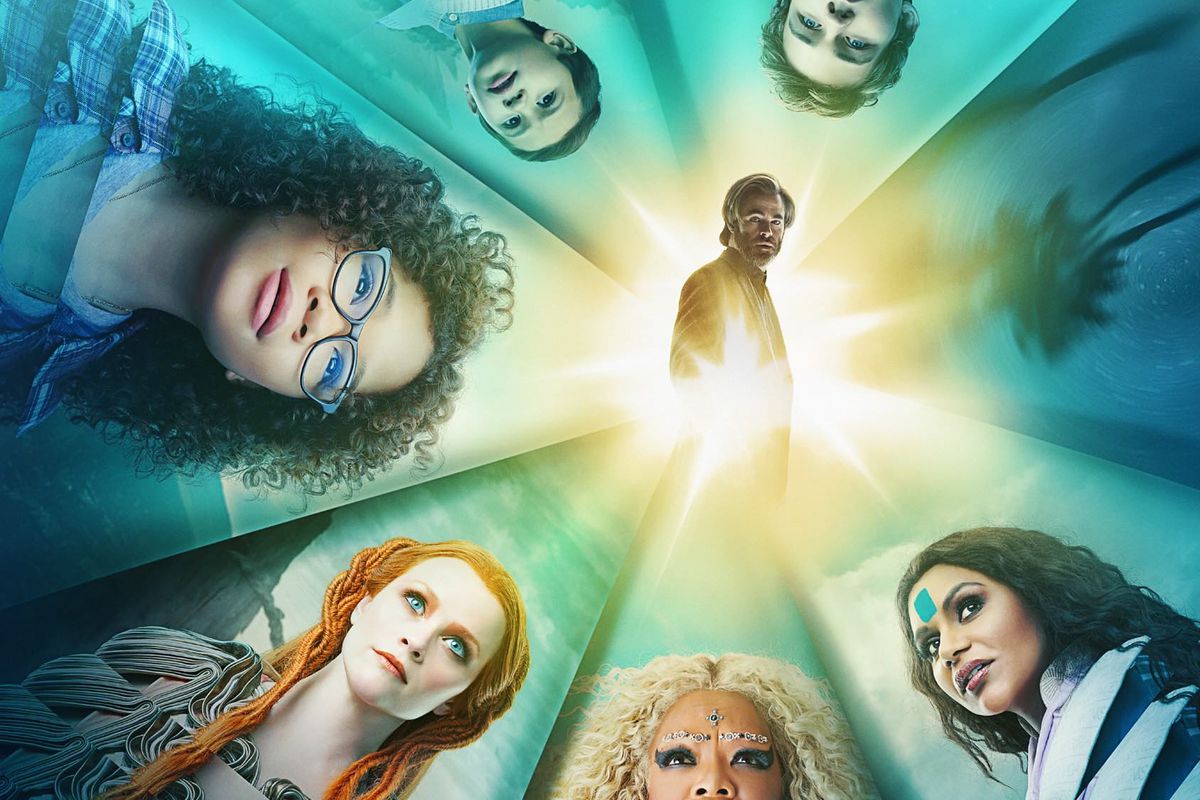After Steven Spielberg changed the movie world with Jaws in 1975, he bought a cavernous Beverley Hills home and filled it with arcade machines. Newly minted and paranoid, the director also installed an elaborate security system, and refused to accept deliveries at the door. Hollywood’s hottest director and his walled-off playpen. Ready Player One is a film built for Spielberg The Younger, from Spielberg The Elder, a cautionary celebration of pop culture toy islands, a messy, whizzing trip into the lens-flare fantasies of the geek id.
In Ready Player One, ‘the OASIS’ is the biggest toy-box ever invented. A giant virtual reality and intensely lucrative MMORPG. Pretty much everyone on the planet slips on their googles and gloves and jacks into the game, because it’s the future, and everything’s a bummer.
Our young hero, Wade Watts (Tye Sheridan), lives with his aunt in tower of compact trailer homes in Oklahoma City called ‘the stacks’. As online avatar ‘Parzival’, Wade is one of the game’s many ‘gunters’ — or, Easter Egg hunters — who spend time and money tracking down a Golden Ticket left behind by the game’s deceased inventor, Halliday, played by a spacey Mark Rylance, part beatnik, part Gandalf. The winner of the Egg gets the keys to the kingdom: unimaginable riches and total control over the OASIS, the world’s biggest economy, as Ben Mendelsohn’s Sorrento frames it, whose company is dedicated to breaking Halliday’s tests and seizing the levers of power.
The world of the OASIS is an unbound realm of imaginative freedom, where you can do whatever you want. And it turns out that what people want is to play games and fuck around. Working off Ernest Cline’s best-selling novel, screenwriters Zak Penn and Cline structure their hero’s quest around the lexicon of video game progression: keys, levels, clues, trials and puzzles, all rendered in weightless cut-scene animation. Parzival buddies up with Art3mis (Samantha, played by Olivia Cooke), Aech (Helen; Master of None’s Lena Waithe) and Sho (Philiip Zhao). On their tail is bounty hunter I-R0k (voiced by T. J. Miller). There’s even someone called F’Nale Zandor. These names are more bearable out loud than written down.
On one level, Ready Player One is what you would get if you gave an average gamer dude a big studio budget: an emotionally shallow adventure about a special boy who uses pop culture trivia to save the world and get the girl. Watts’ alliterative name is inspired by the nominative repetitions Stan Lee was so fond of, and there is a second-hand, referential logic to the film that, actually, fits in well with the essentially imitative nature of current studio cinema. Colin Trevorrow’s Jurassic World recycling Spielberg’s original beats was bad enough; the man himself doing a T-Rex callback in Ready Player One is kind of depressing.
It all builds to a big, brash CGI clash in which a Gundam and Iron Giant fight Mechazilla to stop a guy beating Adventure on the Atari 2600. How you will feel about this film depends entirely on how you react to that series of words.
The more the film shifts into the real world, an earnest, goofy story of kids versus corporate assholery, the more watchable it becomes. And the essential sadness at the core of the story, itself hardly subtly expressed, becomes clearer. Halliday the geek hero in a Space Invaders shirt, pining over the girl who got away, who built a new world because he felt weird in the real one. Maybe Spielberg sees some possible version in himself in Halliday’s unsexed Peter Pan figure (Hook, with its insistence on accepting adulthood, looms large).
Also, as a sidenote, a more challenging narrative would have pushed back against Halliday’s ‘tragic’ love story, which is guilty, in its fixation on an ideal woman, of a kind of fetishing impulse that runs through the film. Then again, when Parzival declares his love for Art3mis, she does call him out for childishly projecting his own stuff on her, an avatar he barely knows. Then again, she does fall for him in the end. Ready Player One has, in case you haven’t noticed, a deeply conflicted relationship with its own assumptions.
This conflict, and the film’s embrace of, and suspicion towards, a (mostly male) sub-culture recalls, of all things, another novel-to-film, Fight Club. Ready Player One – ‘Byte Club’ perhaps? – is more aesthetically forgettable, but it also simultaneously glamourises and undercuts an escapist outlet for frustrated egos. And odds are, just like Fincher’s film, what message it has won’t make much of a dent on its intended audience, delirious with the validation of such blatant, on-screen pandering. Conor Smyth
Ready Player One is out on wide release.







